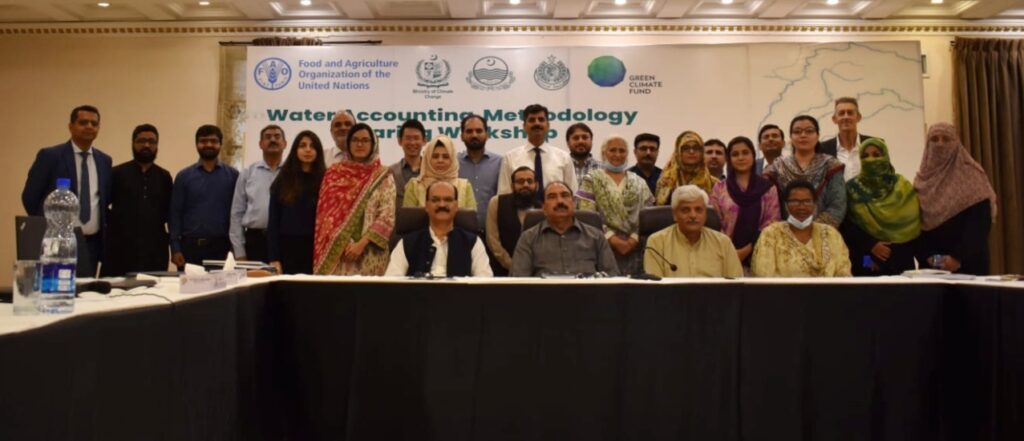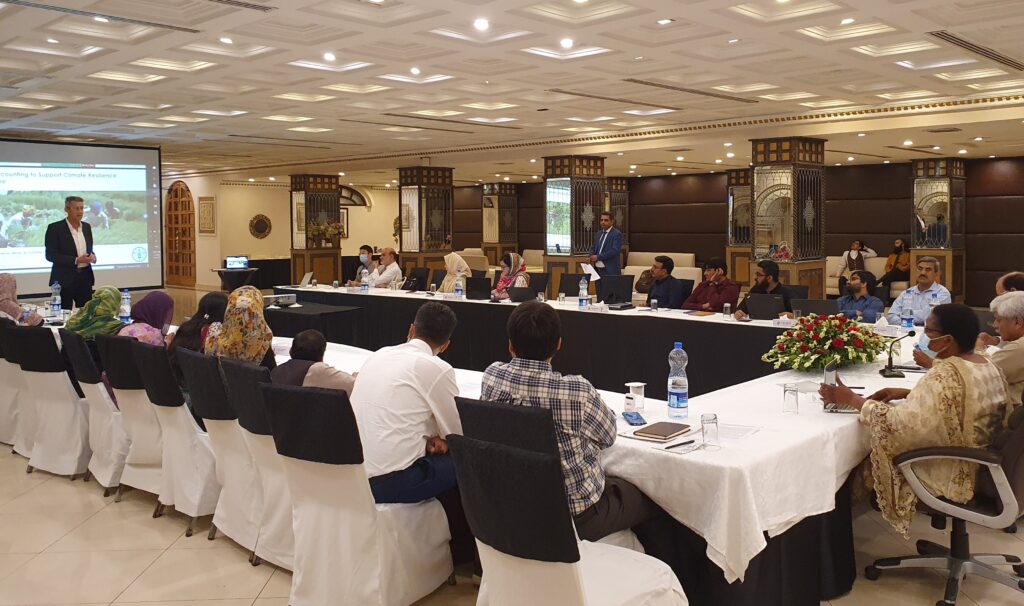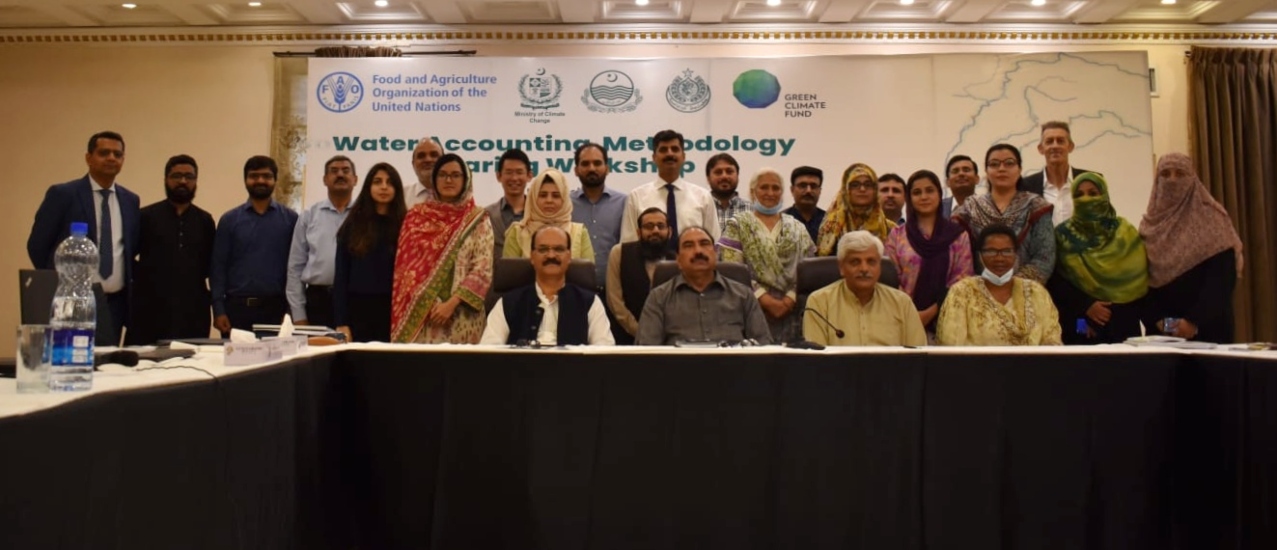On 25th July and 2nd August 2022, FAO Pakistan conducted a Water Accounting Methodology Sharing workshop in Lahore (Punjab) and Karachi (Sindh), respectively. Peter Droogers (Senior Hydrologist) and Tania Imran (Consultant) from FutureWater joined the workshop to deliver introductory sessions on the concept of water accounting and the potential use of remote sensing.
The workshop was conducted as part of the Green Climate Fund (GCF) project titled “Transforming the Indus Basin with Climate Resilient Agriculture and Water Management”. The project aims to shift agriculture and water management to a new paradigm in which processes are effectively adapting to climate change.
Government officials from different provincial departments as well as researchers from various universities participated in both the workshops. Peter, as a Senior Water Specialist for the project, explained the concept of water accounting through interactive exercises and highlighted how water accounting can help analyze future scenarios and inform decision-making for sustainable water resources management. He also introduced the concept of real water savings in agriculture to broaden the participants’ perspectives and encourage them to reflect on what constitutes as ‘water losses’. Similarly, Tania shared the limitations of the existing WA methodology which solely relies on ground data and introduced opportunities for remote sensing to fill these gaps. As examples of geospatial analysis tools that can be employed for this task, she introduced Google Earth Engine and EarthMap to the participants through short exercises.
As one of the objectives of Component 1 of the project is to develop an interdisciplinary team to establish a water accounting system at four different scales, FutureWater is currently involved in building this interdisciplinary team and enhancing their technical capacity.
For this, one-on-one stakeholder meetings with different government organizations, such as Pakistan Meteorological Department, On-Farm Water Management and Provincial Irrigation Departments, also took place during the visit. The aim of these stakeholder meetings was to assess their existing technical capacity, identify training needs and gain an understanding of their desired outputs.
The next step is to design a training curriculum that will enable this interdisciplinary team to conduct water accounting at different spatiotemporal scales.





